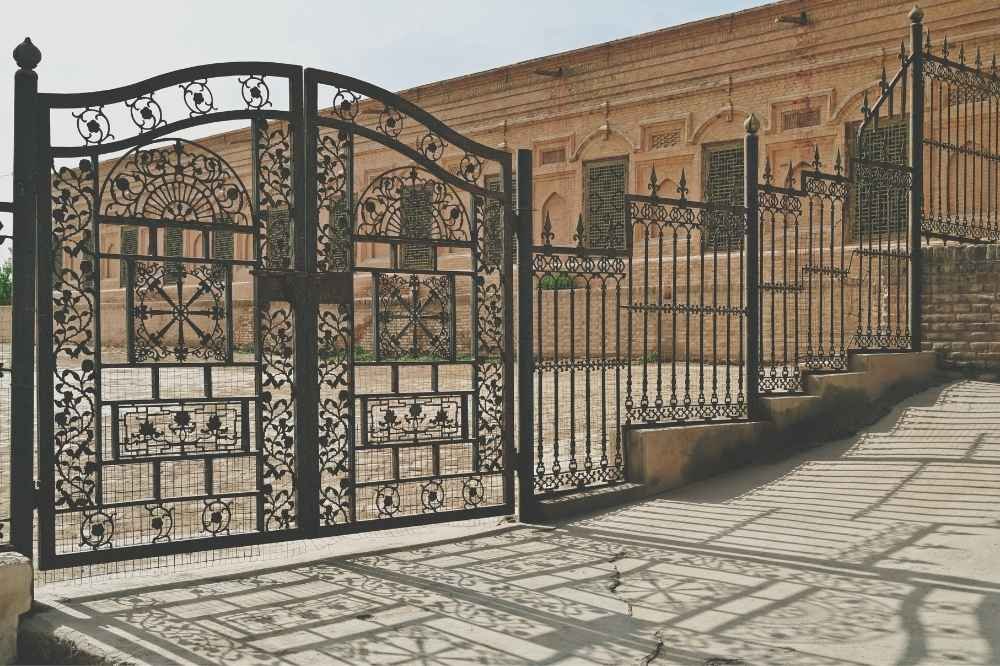Choosing the Best Material for Long-Lasting Gates: Durability and Elegant Design
In a place like St. George, Utah, gates do more than secure your home—they make a statement. The material you choose impacts how long your gate will last, how much maintenance it will need, and how it will look over time. Whether you're building new or replacing an old gate, it's worth understanding how different materials compare in terms of durability, aesthetics, and upkeep.
This guide will help homeowners in St. George navigate the pros and cons of common gate materials to find the right fit for their style and needs.
Why Gate Materials Matter in St. George, UT
St. George’s dry climate, temperature swings, and strong sunlight affect how certain gate materials perform. Choosing a gate that stands up to weather while retaining its visual appeal can save money in repairs and replacements down the line.
Durability, maintenance, and design flexibility are the three pillars of a long-lasting and attractive gate.
Comparing Popular Gate Materials
Here’s a quick side-by-side comparison of the most common gate materials.
|
Material |
Durability |
Maintenance Needs |
Design Flexibility |
|
Wrought Iron |
Very High |
Moderate |
High |
|
Steel |
Very High |
Moderate |
Moderate |
|
Aluminum |
Medium |
Low |
Moderate |
|
Wood |
Medium |
High |
High |
|
Composite |
High |
Low |
Moderate to High |
Wrought Iron Gates
Wrought iron gates are known for their elegance and strength. They are often used in historic or luxury-style homes and can be customized with ornamental patterns.
Key Benefits
Strong and weather-resistant with proper coating
Visually elegant and detailed
Excellent for Driveway Gates that need to be both secure and attractive
Potential Drawbacks
Can rust without regular paint or protective finish
Heavier and may require more complex installation
Steel Gates
Steel is among the strongest materials used for gates, offering excellent protection and longevity.
Key Benefits
Resists warping, denting, and physical force
Long-lasting when galvanized or powder-coated
Suitable for high-security areas
Potential Drawbacks
Susceptible to rust if coatings are damaged
Heavier than other options, which may limit design freedom
Steel is a top choice for Driveway Gates where security is a major concern.
Aluminum Gates
Aluminum is valued for its lightweight and rust-resistant properties. It doesn’t have the same strength as iron or steel, but it holds up well in dry, sunny environments.
Key Benefits
Doesn’t rust or corrode
Lightweight, easy to install
Lower maintenance
Potential Drawbacks
Less durable under impact
Limited structural strength for wide spans
Aluminum works well for smaller gates or decorative installations that don’t require heavy-duty performance.
Wood Gates
Wood gates provide natural charm and are ideal for homeowners who prioritize visual appeal. However, wood is more vulnerable to climate conditions.
Key Benefits
Customizable and easy to style
Warm and natural appearance
Can be painted or stained to match your home
Potential Drawbacks
Requires sealing or painting to prevent damage
Vulnerable to insects, moisture, and warping
Wood is commonly chosen for Driveway Gates in traditional or rustic settings.
Composite Gates
Composite materials combine recycled wood fibers and plastics, offering the aesthetics of wood without as much maintenance.
Key Benefits
Weather-resistant and durable
Won’t warp or rot
Offers wood-like texture without upkeep
Potential Drawbacks
More expensive upfront
Limited detailing options compared to metal
Composite gates are often ideal for homeowners looking for a long-term, low-maintenance option that still has visual appeal.
Factors to Consider When Choosing
Gate Materials
Each gate material comes with trade-offs. Use the pointers below to guide your decision.
1. Climate Compatibility
Dry, sunny climates require UV- and rust-resistant materials like aluminum or composite.
2. Security Requirements
Heavier metals like steel and wrought iron are best for high-security applications.
3. Maintenance Commitment
Low-maintenance options: aluminum and composite
Higher maintenance: wood and wrought iron
4. Design Preferences
Choose wrought iron or wood if you want custom, ornamental designs.
Choose composite or aluminum for clean, modern looks.
Customization Through Skilled Craftsmanship
Choosing a material is just one part of the process. The quality of fabrication and installation makes a huge difference in how your gate performs and ages. Precision Ornamental Welding plays an important role in achieving precise, long-lasting designs across all material types.
Custom gates built with attention to detail not only look better but are also better fitted to your property, reducing wear and enhancing durability.
Conclusion
When selecting the best gate material for your property in St. George, UT, consider how climate, style, and upkeep all come into play. Wrought iron and steel offer unmatched strength, aluminum brings lightweight convenience, wood gives rustic charm, and composite balances the best of both worlds.
Ultimately, the right choice depends on your priorities—whether that’s timeless aesthetics, low maintenance, or maximum durability. And with proper craftsmanship from professionals experienced in Precision Ornamental Welding, your gate can serve as both a security feature and a lasting design element for years to come.
